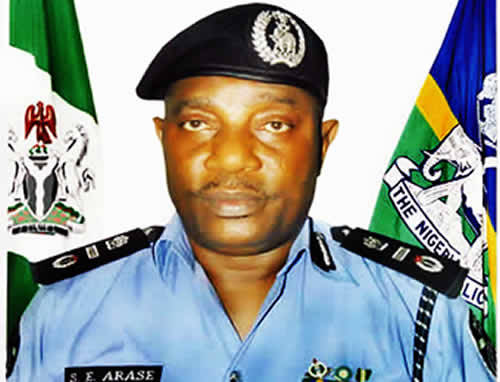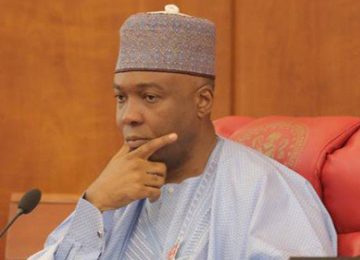Reflections Without Mirror……..Niyi Aborisade
Col. Victor Adebukunola Banjo: A Genuine Revolutionary Part 8
*Judicial System*
Col Victor Banjo presented his evidence as a litigant in person . He also spoke for the other accused , Col. Emmanuel Ifejuana , Major Phillip Alale and Sam Agbam. All the accused were officers from the Liberation Army of Nigeria.
The Nigeria judicial system copied from the British and USA is Adversarial Judicial System as opposed to Inquisitoral Judicial System. Adversarial is a legal proceedings in which parties in dispute have legal responsibility for finding and presenting evidence either by themselves ( litigant in person) or through their lawyers and the judge would adjudicate as an impartial arbiter. Whereas Inquisitorial is a judicial system that generally aims to get the truth of a matter, especially in civil proceedings through extensive investigation and examination of all evidence. The judge may serves as the presenter of the case as he was the one that conducts the investigation and presents evidence. This function is often vested in the office of the public procurator. This system is common in China, Germany, and Japan.
The adversarial system was the same judicial system that the defunct Biafra Republic under Ojukwu employed at least in theory to try Banjo and others . However, in one of viral documents produced by Major Okonkwo who was the military administrator appointed by Ojukwu for Mid-West after Banjo captured the place, he claimed that he and Ojukwu participated in court- martialling Banjo and others. From that statement, it can be inferred that the trial was a mixture of adversarial and Inquisitorial. However, any other statement or evidence from Major Okonkwo must be properly examined and scrutinised particularly , anything he said against Banjo because Banjo initially opposed his appointment as an administrator of Mid-west, from that time,he had something against him, he had marked out Banjo for trouble. Banjo advised Ojukwu to choose non- Ibo Mid-westerner as administrator to assure the people that the Liberation Army of Nigeria was not an Ibo army of occupier but army of liberation that involves all ethnic group in Nigeria. For the above reason any evidence or statement from Okonkwo should be treated as ‘tainted’.
The state of Biafra was represented by the head of the Biafran Army Intelligence Directorate. The trial was given a day trial, which took place on 20 September 1967. For a case of this magnitude of four senior military officers of the Liberation Army of Nigeria, it was unintelligible, unreasonable, irrational and defies logic for any serious court to allow only one day trial; the reason for allowing only one day for trial was indeed very strange because there should be time for cross examination and evidence in chief, if the court was interested in truth and justice. The whole trial was rushed and appeared as a trial only in name, to give effect to only one thing; Legitimacy to murder. It was like the yoruba proverbs, ‘ an insect that is dancing on top of rivers of water,its drummer was beneath the river. Ojukwu was behind the scenes.
The Defence:
Banjo opened up his defence by tracing the history of how he was involved in the war and his roles since he was released from prison by Ojukwu.
He explained that he came into the war when Biafra was being compromised and appeared to be losing the battle. His formation of the Biafra Militia and formation of 101st Brigade from the scratch to assist Ojukwu his friend from losing the war since many of his trusted officers were sabotaging him already. He emphasised his brilliant plan of taking Midwest that surprised the Federal Troops, he elaborated on his many successes he delivered for Ojukwu and the reason why he was unable to proceed to lagos of which Ojukwu was aware of; there were no weapons to prosecute the war to Lagos and he did not just abandon the mission but decided to withdraw at Ore based on his full military appraisal of the situation at the time. He maintained that he can not bring himself lnto planning anything against the person of Ojukwu, his good friend. He relied on his years of friendship with Ojukwu as one of the reasons he cannot plan anything against him. He denied his involvement in any coup. He denied all the 2 charges against him. He presented a succinct defence . He maintained that all his comrades on trial were not involved any planning of coup. He asked the judge to dismiss the case against him and the other accused.
He confirmed that there were group of young men in Biafra ,a mixture of military officers and politicians that met regularly to discuss both the military and political aspects of Biafra but there was never any plan or discussion of toppling the government of the Republic of Biafra.
Banjo did not make any confession before or in the middle of the trial as stated by Major Okonkwo. If there were confessions, these would have been put before Nzegwu as evidence but there was none. When Ojukwu was asked by American consular for evidence, he responded by saying that he had copies of the notes since Banjo was a meticulous man who kept a record of everything . One now begins to wonder why this evidence was not produced to the SpecialTribunal , particularly when Nzegwu requested for evidence before convicting the accused. No evidence was provided to him, which made him refuse the order to condemn them.
The defendants explanation and plea fell on deaf ears, a decision had been made against them already and it was orchestrated from the top. The defendants stood no chance at all, even if they had hired the best lawyer in the world to represent them, they would still be condemned.
General Aguyi Ironsi V General Odumegwu Ojukwu
Whatever we may have said against Aguyi Ironsi, he was still a fair, considerate and a reasonable man. I say this much, bearing in mind his sympathy for the 15 January 1966 coup plotters. When they were arrested, he did not order their execution but kept them in detention despite the fact that the officers had already executed their plan but the coup had failed . It was not just a mere intention to stage a coup but an abortive coup that had claimed the lives of many. He himself managed to escape their ambush that night coming from a party but later managed to raise troops against them otherwise, he would had been stone dead from the carbine of those who stopped his car but whatever, he might have used on them, he was allowed to pass even when their instruction was clear which was to arrest him. There were sufficient reasons to have court- martialled them and had them shot by firing squad but he chose to spare them that agony of death by keeping them in detention with hope of releasing them when the dust were settled. Unfortunately, instead of dusts to become settled , they later became a storm that swallowed many people. In that respect, no one can accuse General Aguyi Ironsi of having blood of anyone on his head
Many people had blamed him for the civil war on the ground that if he had killed the coup plotters, may be, there would not be any civil war. I disagree. The Northerners would still not have accepted him as the head of states then, it was either Northerner or no one else. They had branded it Ibo coup and so nothing can assuage them than retaliation against the Igbos of which he was one. Elevating them above other officers of Yoruba and Ibo extracts was not enough, it was a cry of blood for blood that led to the July 1966 counter coup. As later emerged , it was a Northerner ( General Gowon, Ironsi’s trusted chief of staff) that seized power from him using a Northerner, General TY Danjuma to arrest and had him assassinated.
Human blood was precious in the sight of General Aguyi Ironsi . We have to give him that credit. He was not a blood thirsty person or a vindictive person.
Ojukwu was not the same, he was an opposite of Ironsi and because of a mere unsubstantial allegation of a coup, which, according to him, did not go beyond planning stage, he sacrificed some of the best officers of the time. Ojukwu system was vampire.
In a terse Judgment, the Ojukwu Special Tribunal promulgated their decision and found all the accused guilty of all the two counts. They were convicted and condemned to death by firing squad.
On 21Septemner 1967, Ademoyega saw the 4 of them from his own cell , saw their heads as they were being led out. Ifeajuana last words to him, was ‘ Wale we have been condemned to death and unless miracle happens , we could be shot at anytime, please take care of my wife and children’.
On the 22 September 1967, To be continued……..
Niyi Aborisade is a lawyer, a Human Rights Activist and a Historian


